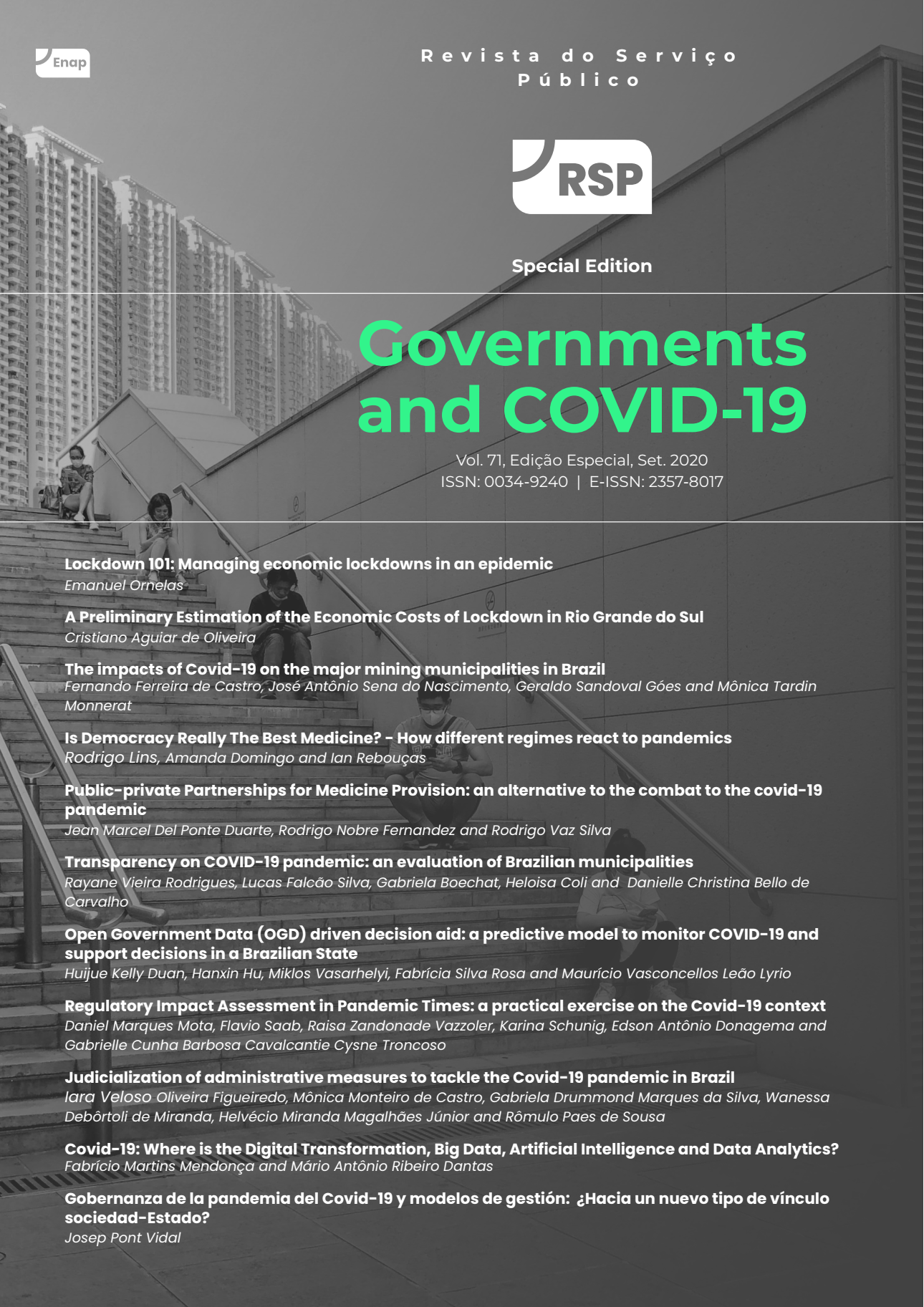Regulatory Impact Assessment in pandemic times: a practical exercise in the COVID-19 context
DOI:
https://doi.org/10.21874/rsp.v71i0.4824Palabras clave:
public administration; COVID-19; regulatory impact assessmentResumen
This study aimed to demonstrate the potential use of the problem analysis and definition, one of the Regulatory Impact Analysis (RIA) phases, as an alternative in directing critical, rational and logical thinking for the formulation of regulatory policies and actions to face COVID-19. The theoretical basis involved an overview of regulation, RIA and problem analysis and definition. A descriptive study with qualitative approach was used to report the results of the virtual workshop, with didactic-pedagogical characteristics, on the main problem analysis and definition in the COVID-19 context. Seven employees and one trainee, who works in the regulatory quality improvement unit at Anvisa, participated in the virtual workshop. The main problem was defined as “Dissemination of the little-known SARS-COV-2 coronavirus, untreated and with a high rate of contagion”. Ten consequences related to the problem were identified, with worsening mental health problems being one of them. As an illustration, the study highlighted five of the 20 causes listed by the participants. The low population adherence to the prevention and control measures was considered one of the problem causes. The risk group population, such as the elderly and people with comorbidities, was one of the 30 agents affected by the problem identified in the workshop. This study is a contribution to coping with COVID-19, as well as to other future public health emergencies.
Descargas
Descargas
Publicado
Cómo citar
Número
Sección
Licencia
- A RSP adota a licença Creative Commons (CC) do tipo Atribuição – Uso Não-Comercial (BY-NC).
- A licença permite que outros remixem, adaptem e criem obra licenciada, sendo proibido o uso com fins comerciais.
- As novas obras devem fazer referência ao autor nos créditos e não podem ser usadas com fins comerciais, porém não precisam ser licenciadas sob os mesmos termos dessa licença.
- Ao publicar o artigo na RSP, o autor cede e transfere para a ENAP os direitos autorais patrimoniais referentes ao artigo.
- O artigo publicado na RSP não poderá ser divulgado em outro meio sem a devida referência à publicação de origem.
- O autor que tiver o artigo publicado na RSP deverá assinar o Termo de Concessão de Direitos Autorais (em momento oportuno a editoria da Revista entrará em contato com o autor para assinatura do Termo).



